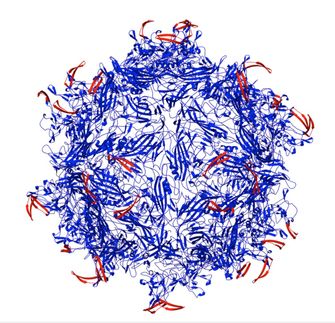Exelixis Announces the Discovery of Two Proteins Involved in Alzheimer’s Disease
Discovery Could Lead to New Therapeutic Approaches to CNS Disorders
Advertisement
SOUTH SAN FRANCISCO, Calif. July 8, 2002 Scientists at Exelixis, Inc., working in collaboration with Pharmacia Corporation have discovered two proteins that play a role in the production of beta-amyloid, the main constituent of senile plaques associated with Alzheimer’s disease. aph-1 and pen-2 are required for activity of the protein presenilin, a key component of gamma secretase, one of the two proteases responsible for the production of beta-amyloid. The discovery of these new proteins could lead to the discovery of novel small molecule drug treatments for Alzheimer’s disease. These findings are published in a cover story in the July 2002 issue of Developmental Cell (vol. 3, no.1, pages 85-97), entitled, “aph-1 and pen-2 Are Required for Notch Pathway Signaling, Gamma-Secretase Cleavage of BetaAPP, and Presenilin Protein Accumulation.”
Leveraging Exelixis’ expertise in using comparative genetics, functional genomics and model systems, scientists carried out a series of genetic screens in worms (C. elegans) to elucidate the biological pathways involved in Beta-amyloid production. These screens were based on the Notch signaling pathway, as gamma-secretase is known to play a dual role in cleavage both of Notch receptors and of the beta-amyloid precursor protein, BetaAPP. Through systematic mutation and observation of the resultant phenotypic changes in the model organism, the essential, conserved role of aph-1 and pen-2 in gamma- secretase activity was identified. Confirmation studies were performed in the fruit fly (Drosophila) and by demonstration that the human orthologs of aph-1 and pen-2 are functional in the C. elegans signaling context.
These discoveries were products of a collaboration established between Exelixis and Pharmacia Corporation to identify novel targets for metabolic diseases and Alzheimer’s disease. That collaboration was completed in February 2002. Pharmacia retains rights to these targets and Exelixis will receive royalties for future development of products against or using these targets.
“The discovery of these two critically important proteins demonstrates the specificity of Exelixis’ proprietary model system platform to discover novel gene targets that could have significant preventive and therapeutic potential against debilitating neurological diseases,” said George A. Scangos, Ph.D., president and chief executive officer, Exelixis. “We were pleased with the successful completion of this project and believe that our research program in CNS and metabolic disorders is a valuable asset that we can further leverage for our own benefit or in partnership with collaborators.”






















































